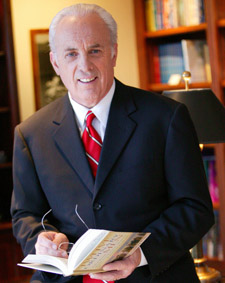The Pilgrims made seven times more graves than huts. No Americans have been more impoverished than these who, nevertheless, set aside a day of thanksgiving. ~H.U. Westermayer
Thanksgiving is the holiday of peace, the celebration of work and the simple life… a true folk-festival that speaks the poetry

Pilgrim Thanksgiving
of the turn of the seasons, the beauty of seedtime and harvest, the ripe product of the year – and the deep, deep connection of all these things with God. ~Ray Stannard Baker
O Lord my Savior and my Master, I, Thine unprofitable servant, with fear and trembling give thanks unto Thy loving goodness for all Thy benefits which Thou hast poured so abundantly upon me, Thy servant. I fall down in adoration before Thee and offer Thee, O god, my praises; with fervor I cry to Thee: O God, deliver me henceforth from all adversities and mercifully fulfill in me such of my desires as may be expedient for me. Hear me, I entreat Thee, and have mercy, for Thou art the Hope of all the ends of the earth, and unto Thee, with the Father, and the Holy Spirit, be ascribed glory, now and ever, and unto ages of ages. Amen. (Source Unknown)
My soul, give thanks to the Lord, all my being, bless His holy name. My soul, give thanks to the Lord and never forget all His blessings. It is He who forgives all your guilt, who heals every one of your ills, Who redeems your life from the grave, who crowns you with love and compassion, Who fills your life with good things, renewing your youth like an eagle’s. The Lord does deeds of justice, gives judgment for all who are oppressed. He made known His ways to Moses and His deeds to Israel’s sons. The Lord is compassion and love, slow to anger and rich in mercy. His wrath will come to an end; He will not be angry forever. He does not treat us according to our sins, nor repay us according to our faults. For as the heavens are high above the earth so strong is His love for those who fear Him. As far as the east is from the west, so far does He remove our sins. As a father has compassion on his sons the Lord has pity on those who fear Him. For He knows of what we are made, He remembers that we are dust. As for man, his days are like grass, he flowers like the flower of the field; The wind blows and he is gone and his place never sees him again. But the love of the Lord is everlasting upon those who hold Him in fear; His justice reaches out to children’s children when they keep His covenant in truth, when they keep His will in their mind. The Lord has set His sway in heaven, and His kingdom is ruling over all. Give thanks to the Lord, all His angels, mighty in power, fulfilling His word, who heed the voice of His word. Give thanks to the Lord, all His hosts, His servants who do His will. Give thanks to the Lord, all His works, in every place where He rules. My soul, give thanks to the Lord. (Source Unknown)
Accept, O Lord, our thanks and praise for all that you have done for us. We thank you for the splendor of the whole creation, for the beauty of this world, for the wonder of life, and for the mystery of love. We thank you for the blessing of family and friends, and for the loving care which surrounds us on every side. We thank you for setting us at tasks which demand our best efforts, and for leading us to accomplishments which satisfy and delight us. We thank you also for those disappointments and failures that lead us to acknowledge our dependence on you alone. Above all, we thank you for your Son Jesus Christ; for the truth of his Word and the example of his life; for his steadfast obedience, by which he overcame temptation; for his dying, through which he overcame death; and for his rising to life again, in which we are raised to the life of your kingdom. Grant us the gift of your Spirit, that we may know him and make him known; and through him, at all times and in all places, may give thanks to you in all things. Amen. (Book of Common Prayer/Book of Divine Worship)








































































